[
I was intrigued with the city of Urumqi after reading a book written by a couple who travelled with their very young family to what was then a very remote Urumqi just after it was connected in the mid 1990's to the railway network that crosses through Kazakhstan to Russia. Perhaps it was the city's exotic name - also known by the Chinese as "Wulumuqi" or "Wushi". Or perhaps it was the fact that it is the furthest place in the world from an ocean (3,270 km). Or perhaps because it is a major hub on the romantic Silk Route Railway Line. I am not sure.
Although we had done our homework and inspected the long distance bus terminal at Turpan the day before, we were somewhat apprehensive about catching the bus to Urumqi. Very few people in Turpan, including our hotel staff, spoke any English at all and there was no English signage at the bus station. And from here on we knew that we would not have any guides to help us.
But like many things you can worry about, it was all unpredictably simple. Our very pleasant taxi driver from our Turpan hotel knew the long distance bus driver bound for Urumqi. When we arrived at the bus depot, he (in gestures) asked for Alan's wallet, then raced off with it to the depot office - presumably to buy our tickets. We looked at each other totally astonished. "How could such experienced travellers allow one of our wallets to be handed over to a complete stranger?" we moaned, aghast at our foolishness.
Thankfully we were in China and our totally reliable and honest taxi driver returned promptly with our tickets - and Alan's wallet. What's more, he pulled out various notes in the denominations he had used to show us how much he had paid for our tickets and counted the change back into the wallet. We had found - and perhaps we were just very lucky - that China is a country of amazingly honest people.
And there we were all tucked up with our tickets aboard our bus for the 150 km trip to Urumqi! The bus trip took about two and a half hours and the entire trip was simply fascinating. Buses are not heated however and it was a very cold trip. It was again through an incredibly desolate landscape with huge expanses of desert, mainly of a gravel bed nature. And for as far as we could see, hundreds of wind farms dotted the scenery, their enormous blades winding frantically around like mad and uncoordinated dancers. Further on our journey, huge open cut coal mines began to dominate the scenery and the road was full of coal carrying truck convoys.
About half way to Urumqi the bus stopped at a petrol station and a number of passengers disembarked presumably for a toilet stop. After our bus trip to Dunhuang, we were well versed in public toilet stops and decided to stay aboard the bus. Several other long distance buses pulled up and like most transport stops there were hundreds of people everywhere. A short time after our bus departed there were shrill shouts from a very agitated elderly Uighur woman. She had boarded the wrong bus. Our bus driver didn't attempt to take her back and the poor heavily veiled woman was forced to gather her long skirts and shawl, and we watched with pity as she ran with ungainly, heavy thick stockinged legs some considerable distance in freezing icy conditions and gale force winds back to the petrol station.
Coming into Urumqi, it became extremely cold, the sky turned a dark steely grey and it began to snow heavily. We were pleased we had our Tibetan jackets with us. We were bitterly cold even being inside the bus.
The outskirts of Urumqi city were pitiful. Poverty stricken people blackened with coal dust somehow eeked out some sort of miserable living amongst the shamble of narrow, coal dusted roads lined with primitive iron clad huts. Faint whispers of smoke emitted from their pathetically primitive, icy cold roofs into a bleak grey sky. Conditions looked appalling and life must have been excruciatingly hard. It was probably the most depressing entrance to a city we had seen. And such a contrast to the thriving, modern and highly prosperous part of Urumqi where our hotel was located.
Like our Turpan experience, our arrival at the long distance bus station in Urumqi was, to say the very least, quite a challenge. In fact it made our other arrivals at Liuyuan and Turpan look like a breeze. The bus station was absolutely chaotic with seemingly thousands of anxious people rushing everywhere and taxi drivers struggling, yelling and arguing over who would take our luggage. Several drivers appeared to be pushed to the ground during the squabbles. This was no easy going banter between the drivers but real live push and shove tactics. It was difficult to stay together amongst the throngs of people and we were beginning to feel quite threatened.
Once again we ended up literally chasing our driver who took off with our luggage to his car - a battered, dusty little vehicle and certainly not a taxi - that was parked a considerable distance from the bus station. We threw ourselves exhausted into his car. This time we knew we were in trouble. Our driver of course spoke no English and seemed to be confused by the hotel name and the street directions we had so carefully translated into Mandarin before we left Australia.
Oops, two problems. Number one - our driver was Uighur and could not speak Mandarin; number two - our hotel had two names, the Hoi Tak and/or the Haide Hotel.
We seemed to circle the city for ages, passing the same buildings several times. And we were feeling more than uneasy. On eventually reaching a large market place, to our surprise our driver stopped the car leaving the engine running, and ran toward some obviously ethnic Chinese looking people who must have translated our hotel details. After some discussion he returned looking relieved and promptly delivered us to our hotel, safe, sound and not overcharged. To our shame we had no idea when we planned this trip that not all people in western China speak Mandarin. Neither did we expect the honesty and friendliness of the local people we dealt with.
Again, as so often we experienced in China, everything seemed to eventually work. We just had to remind ourselves, as we had to do time and time again, that we couldn't get too concerned about the absolute and utter chaos we often seemed to be surrounded in on our bus and rail journeys. And we were certainly cheered up when we arrived at our hotel. The Hoi Tak Hotel was, and still is, a wonderful hotel and a relaxing and quite luxurious place to stop off at before our next long journey to Kashgar.
Urumqi, the capital of the Xinjiang Province is located in the far north-west of Xinjiang Province just past the point where the main railway splits with one line entering Kazakhstan toward Russia and the other heading south-west to Kashgar. The city is situated in a valley between the majestic, snow covered Tian Shan mountains. It enjoys a very cold climate which is not surprising given its mountainous surrounds, high latitude and proximity to Mongolia, Russia and Kazakhstan.
Down town Urumqi is a surprisingly prosperous looking city. Sitting oddly side by side with tall modern sky scraper buildings and modern department stores are ancient mosques and older buildings that are very Islamic in architecture. It was a fine place to chill out and enjoy the melting pot of different peoples and their cultures, the old markets and bazaars and the niceties and convenience of sophisticated shopping centres.
Once again the majority of people were very Central Asian looking, although there appeared to be a lot more people of ethnic Chinese origin in central Urumqi city. We were intrigued to see so many big four wheel drives. There were Toyota Land Cruisers everywhere, many BMW's, Buiks, Lincolns and a plethora of Honda Accords. Central Urumqi appeared to enjoy a prosperity which was in stark contrast to the abject poverty we witnessed on our bus trip through the outskirts of the city.
In the afternoon we enjoyed wandering around the modern Tian Shan shopping centre, located on the other side of the lovely Renmin Park and just opposite our hotel. It was a pleasure to relax and enjoy stocking up on some basic food supplies. It was also a pleasure to enjoy a wonderful evening buffet meal at our hotel. The variety and quality of the various dishes was astonishing, varying from traditional eastern Chinese to those of Russian-European influence. We were in our element, enjoying a variety of fish platters, smoked salmon and prawns, and wondering if we were really in the city which is the furtherest from a coastline in the world.
A buffet breakfast is always a special treat for us when we are away. Enjoying our relaxed morning meal, we noticed a strangely familiar couple of European appearance in the dining room. Ralph and Adrienne van Gelder were ex-colleagues from the country city of Orange, in the central west of New South Wales, Australia. And how amazing could that co-incidence be in a city that is so far away from our home? Ralph and Adrienne were returning home via China after several months of working on an aid program in Kyrgyzstan. It was great fun to meet up with them and talk about their experiences in Kyrgyzstan, a country that we were interested to visit on our future travels. It certainly is a very small world....
To our disappointment the Urumqi Museum was closed on Saturdays so we spent the first morning walking some four kilometers to and around the Erdaqiao Muslim markets. The walk was most enjoyable, although it was simply packed with people and cars. The markets were great fun. The stall holders were warm, friendly and helpful, and I was in my element trying to choose between a staggering array of beautiful Muslim scarves and shawls, and some very lovely but not expensive jewellery.
Although we only stayed in Urumqi for a short time, it was a very pleasant place for a stopover. We badly needed a rest by this stage as our next journey from Urumqi was a 23 hour rail trip to Kashgar in the far west, the very end of China's frontier and truly part of the distant Chinas.
Exotic Urumqi - As Far From the Sea as You Can Be
Friday, October 26, 2007
 Ürümqi, Xinjiang, China
Ürümqi, Xinjiang, China
Other Entries
-
1From Crowdy Head to Sydney - Our Journey Begins
Oct 0620 days prior Crowdy Head, Australiaphoto_camera0videocam 0comment 0
Crowdy Head, Australiaphoto_camera0videocam 0comment 0 -
2On the Eve - Our Journey to the Distant Chinas
Oct 0719 days prior Sydney, Australiaphoto_camera2videocam 0comment 0
Sydney, Australiaphoto_camera2videocam 0comment 0 -
3A Brief Return to Our Favourite City of Shanghai
Oct 0818 days prior Shanghai, Chinaphoto_camera5videocam 0comment 0
Shanghai, Chinaphoto_camera5videocam 0comment 0 -
4Our Journey to Zhongdian, via Kunming
Oct 0917 days prior Kunming, Chinaphoto_camera2videocam 0comment 0
Kunming, Chinaphoto_camera2videocam 0comment 0 -
5Two Delightful Days in Shangri-la - "Paradise"
Oct 1016 days prior Zhongdian, Chinaphoto_camera8videocam 0comment 0
Zhongdian, Chinaphoto_camera8videocam 0comment 0 -
6Mystical Lhasa
Oct 1115 days prior Lhasa, Chinaphoto_camera8videocam 0comment 0
Lhasa, Chinaphoto_camera8videocam 0comment 0 -
7Friendly and Not so "Ho-Hum" Tsedang
Oct 1313 days prior Tsedang, Chinaphoto_camera16videocam 0comment 0
Tsedang, Chinaphoto_camera16videocam 0comment 0 -
8Rural Tibet - Our Desert Journey to Gyantse
Oct 1511 days prior Gyantse, Chinaphoto_camera19videocam 0comment 0
Gyantse, Chinaphoto_camera19videocam 0comment 0 -
9More of Rural Tibet - Our Trip to Shigatse
Oct 1610 days prior Shigatse, Chinaphoto_camera4videocam 0comment 0
Shigatse, Chinaphoto_camera4videocam 0comment 0 -
10Returning to Lhasa
Oct 188 days prior Lhasa, Chinaphoto_camera4videocam 0comment 0
Lhasa, Chinaphoto_camera4videocam 0comment 0 -
11Aboard the Lhasa Express - Lhasa to Golmud
Oct 197 days prior Golmud, Chinaphoto_camera18videocam 0comment 0
Golmud, Chinaphoto_camera18videocam 0comment 0 -
12Salt Pans, Altun Shan and a Taklamakan Apparition
Oct 206 days prior Dunhuang, Chinaphoto_camera6videocam 0comment 0
Dunhuang, Chinaphoto_camera6videocam 0comment 0 -
13Lovely Dunhuang - An Oasis in the Gobi Desert
Oct 224 days prior Dunhuang, Chinaphoto_camera16videocam 0comment 0
Dunhuang, Chinaphoto_camera16videocam 0comment 0 -
14Frenetic Liuyuan and our Rail Trip to Turpan
Oct 233 days prior Turpan, Chinaphoto_camera0videocam 0comment 0
Turpan, Chinaphoto_camera0videocam 0comment 0 -
15Toward Turpan - Our Welcome to Xinjiang Province!
Oct 242 days prior Turpan, Chinaphoto_camera2videocam 0comment 0
Turpan, Chinaphoto_camera2videocam 0comment 0 -
16Tales of Turpan - Second Lowest Basin in the World
Oct 242 days prior Turpan, Chinaphoto_camera11videocam 0comment 0
Turpan, Chinaphoto_camera11videocam 0comment 0 -
17Exotic Urumqi - As Far From the Sea as You Can Be
Oct 26 Ürümqi, Chinaphoto_camera7videocam 0comment 0
Ürümqi, Chinaphoto_camera7videocam 0comment 0 -
18Twenty Three Hours to Kashgar by Rail
Oct 282 days later Kashgar, Chinaphoto_camera0videocam 0comment 0
Kashgar, Chinaphoto_camera0videocam 0comment 0 -
19Our Introduction to the Frontier City of Kashgar
Oct 293 days later Kashgar, Chinaphoto_camera4videocam 0comment 0
Kashgar, Chinaphoto_camera4videocam 0comment 0 -
20A Driver Called Mukhtar - Travels to Tashkorgan
Oct 304 days later Tashkorgan, Chinaphoto_camera14videocam 0comment 0
Tashkorgan, Chinaphoto_camera14videocam 0comment 0 -
21Kashgar Old City, More Carpets and Abdul Karim
Oct 315 days later Kashgar, Chinaphoto_camera7videocam 0comment 0
Kashgar, Chinaphoto_camera7videocam 0comment 0 -
22On the Home Run - From Kashgar Back to Urumqi
Nov 027 days later Ürümqi, Chinaphoto_camera4videocam 0comment 0
Ürümqi, Chinaphoto_camera4videocam 0comment 0 -
23From Urumqi to Shanghai, Sydney and Home
Nov 049 days later Shanghai, Chinaphoto_camera1videocam 0comment 0
Shanghai, Chinaphoto_camera1videocam 0comment 0 -
24Home In Crowdy Head and A Message to Our Readers
Nov 0510 days later Crowdy Head, Australiaphoto_camera0videocam 0comment 0
Crowdy Head, Australiaphoto_camera0videocam 0comment 0

 Ürümqi, Xinjiang, China
Ürümqi, Xinjiang, China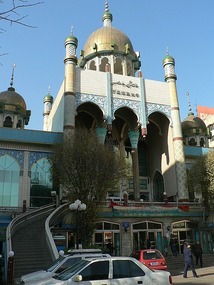
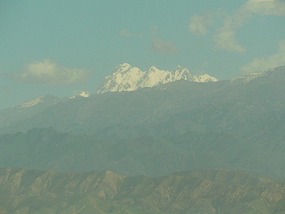
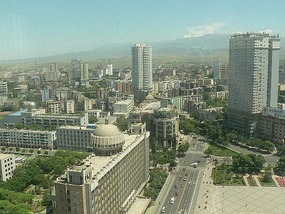
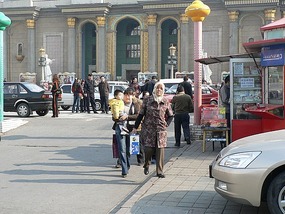
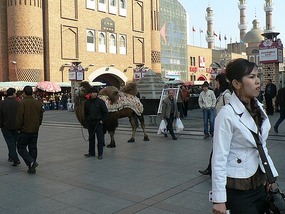
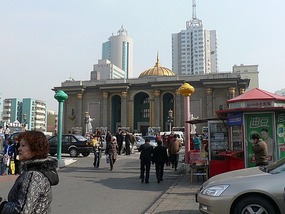
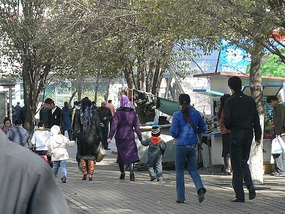


2025-05-23